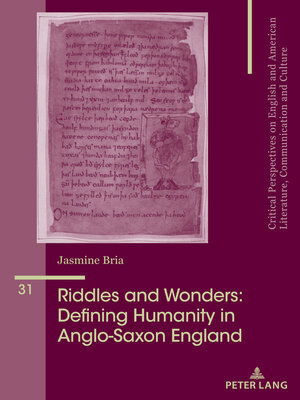Riddles and Wonders
ebook ∣ Defining Humanity in Anglo-Saxon England · Critical Perspectives on English and American Literature, Communication and Culture
By María José Álvarez-Faedo

Sign up to save your library
With an OverDrive account, you can save your favorite libraries for at-a-glance information about availability. Find out more about OverDrive accounts.
Find this title in Libby, the library reading app by OverDrive.



Search for a digital library with this title
Title found at these libraries:
| Library Name | Distance |
|---|---|
| Loading... |
Throughout the history of human civilization, the definition of the animal and its relationship to humans have been contentious issues. This book investigates the notion of what constituted an animal in Early Medieval English culture as well as how the animal-human interaction is portrayed in the Anglo-Saxon literary corpus. In this regard, the animal's portrayals in the Exeter Book Riddles and of monstrous creatures in the Wonders of the East provided a fertile field for research because these texts, rarely connected to allegorical readings and offering viewpoints that might be seen as complementary, deal with fundamental issues regarding what it meant to be human for Early Medieval English society.
This study offers fresh insights into the characters and themes explored in the Exeter Book collection and in the Wonders of the East, looking for the spaces of Anglo-Saxon thought in which animality and humanity appear to meet. The author not only discovers the peculiar features in the definition of humanity with regard to animal and non-human figures, but is able to demonstrate that a strong anthropocentric vocation can coexist with an outlook that recognizes a close affinity among different species.







